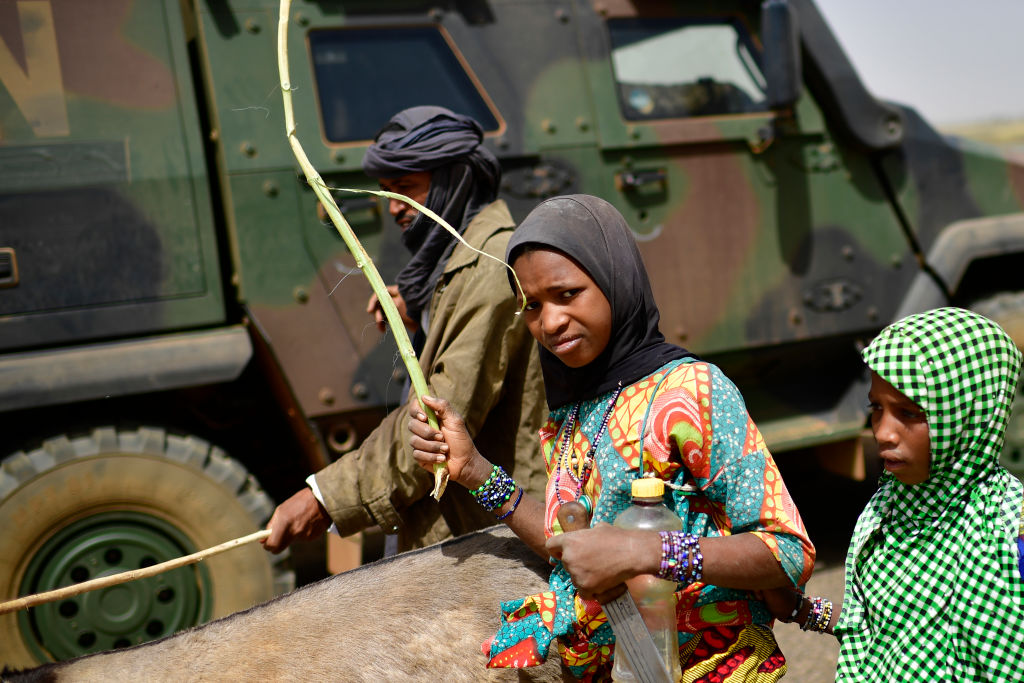ADF STAFF
Since Russia’s Wagner Group mercenaries arrived in Mali, civilians have been increasingly caught in their crosshairs.
After hundreds of Wagner Group fighters deployed in Mali purportedly as “trainers” and “advisors” in December 2021, at least 71 Malian people were killed by government-aligned security forces, according to a report by Human Rights Watch (HRW).
“There has been a dramatic spike in the number of civilians, including suspects, killed by the Malian army and armed Islamist groups,” HRW West Africa Director Corinne Dufka said in a statement. “This complete disregard for human life, which includes apparent war crimes, should be investigated and those found to be implicated, appropriately punished.”
The Wagner Group is a private military company that observers generally agree operates with connections to Russia’s national security apparatus, President Vladimir Putin and his rich cronies. Its use gives Russia influence with plausible deniability.
International condemnation and warnings based on the Wagner Group’s history of atrocities in Africa swiftly came after reports of the deployment of the Russian mercenaries.
“This deployment can only further deteriorate the security situation in West Africa [and] lead to an aggravation of the human rights situation in Mali,” a group of 15 European nations and Canada said in a December 23, 2021, statement.
The worst was yet to come.
During a March 27-31 raid on Moura, a central Malian town of about 10,000 inhabitants, Malian soldiers and more than 100 Russian mercenaries participated in the summary executions of an estimated 300 men, according to 19 witnesses who spoke to HRW.
“Over the four days, the soldiers ordered the detained men in groups of four, six, or up to 10, to stand up and walk for between several dozen and several hundred metres,” HRW said, according to the BBC. “There, the Malian and foreign soldiers summarily executed them.”
“This village is in the heart of the flooded area, which has been controlled for several years by Macina katiba’s men (an Islamist militant group linked to al-Qaida). But this obviously does not mean that all its inhabitants are jihadists or that they are linked to jihadist groups,” a source familiar with the area told The Africa Report magazine, which withheld the person’s name for safety.
It was a Sunday market day when troops landed in helicopters, surrounded the area, patrolled through town, executed several men who tried to flee, and detained hundreds of unarmed men from the market and their homes.
Witnesses said some of those detained were known Islamist militants who had hidden their weapons and tried to blend in with villagers and traders.
“It was unimaginable,” a Moura trader told Reuters. “They came, they took 15, 20 people and lined them up. They made them kneel down and shot them.”
Russian mercenaries and Malian forces also were accused of rape, stealing jewelry and money, looting, and burning dozens of motorcycles, according to HRW and United Nations reports.
Dufka of HRW called it the worst atrocity in Mali’s 10-year armed conflict with Islamist insurgents.
The Russian foreign ministry issued a statement on April 8 that dismissed the allegations of summary executions and war crimes as “disinformation.” Mali has denied the allegations, saying it had conducted a professional operation to attack insurgents in Moura, adding that it would carry out its own assessment.
Also on April 8, the U.N. Security Council drafted a proposal to investigate alleged atrocities in Moura. Russia and China rejected it.
Recently, the U.N. mission in Mali said it was concerned by reports of more human rights violations committed by Malian army and foreign military personnel during a weekly market in Hombori in northern Mali on April 20.
The mission said on Twitter that it has opened an investigation and plans to visit the scene soon.
Also on April 20, the U.N. said it was “extremely concerned” that Mali has not allowed its investigators access to Moura.
“Time is of essence to ensure accountability and prompt, effective justice for victims,” U.N. spokesperson Seif Magango said in a statement, adding that unconfirmed sources have suggested the death toll could be as high as 500.

